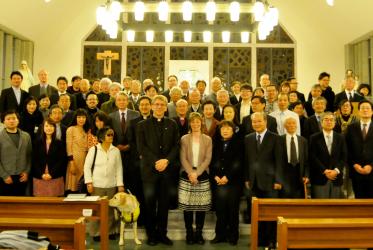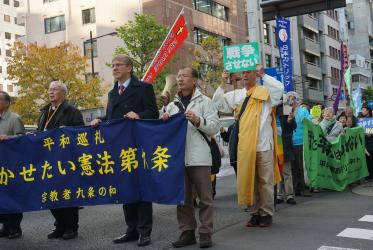Displaying 81 - 100 of 106
核の脅威を終結させるため、教会指導者が広島と長崎への巡礼の旅に
27 July 2015
Momentum builds for ban on nuclear weapons
16 December 2014
Churches in Japan are witnesses of justice and peace
12 December 2014
Weaving together personal faith and climate change
23 September 2014







